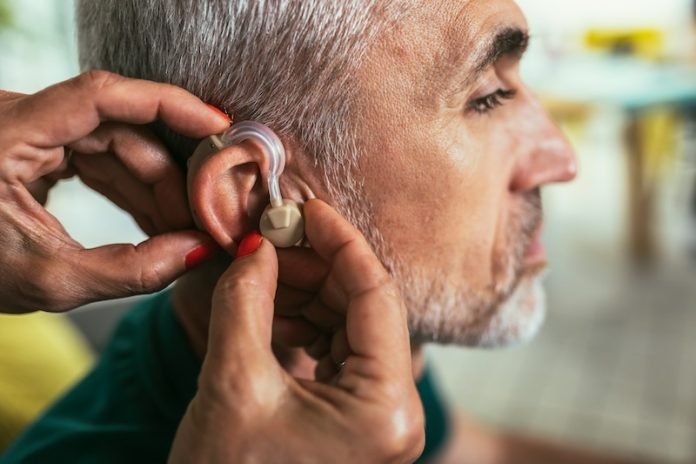
When we think about high blood pressure, also known as hypertension, we often consider its effects on the heart or the brain.
However, an equally important but less discussed area it impacts is our hearing. Yes, you read that correctly.
The same condition that can cause issues with your heart and blood vessels can also affect your ability to hear the world around you.
This connection might seem surprising at first, but when you dive into the hows and whys, it starts to make sense.
Blood pressure is essentially the force that moves blood through our circulatory system. It’s vital for life, delivering oxygen and nutrients to every part of our body, including our ears.
Our hearing depends on tiny blood vessels and nerves in the inner ear that can be sensitive to changes in blood pressure. When blood pressure is too high, it can cause damage over time to these small vessels, leading to hearing loss.
Research evidence has been mounting over the years to support the idea that hypertension could be a risk factor for hearing loss.
Various studies have looked into how people with high blood pressure are more likely to experience diminished hearing compared to those with normal blood pressure levels.
One reason is that high blood pressure can lead to a reduction in blood flow to the inner ear, which can damage its delicate structures.
Another reason is that the stress of high blood pressure on blood vessels can lead to arteriosclerosis (hardening of the arteries), which can affect the tiny arteries in the ear, reducing their ability to supply necessary nutrients and oxygen.
Interestingly, some studies have shown that not only can hypertension lead to hearing loss, but the relationship may also go the other way around. Individuals with reduced hearing might be at a higher risk of developing high blood pressure.
This is thought to be because hearing loss can lead to decreased social engagement and increased stress, both of which are risk factors for hypertension.
What does all of this mean for you and your health? First, it highlights the importance of managing blood pressure through lifestyle changes and, when necessary, medication.
Eating a balanced diet, exercising regularly, limiting alcohol intake, and avoiding smoking can all help maintain healthy blood pressure levels and, by extension, protect your hearing.
Second, it suggests that regular hearing checks might be a good idea, especially for those with high blood pressure.
Early detection of hearing loss can lead to interventions that may preserve your ability to hear. Conversely, knowing you have hearing loss could be a reason to check your blood pressure more regularly.
In conclusion, while high blood pressure and hearing loss may seem like an unexpected pair, the connection between them is supported by growing research evidence. Understanding this link is crucial, not just for scientists and doctors but for everyone.
It serves as a reminder of how interconnected our bodies are and how a problem in one area can affect seemingly unrelated parts. By taking care of our blood pressure, we’re not just protecting our hearts but also our ability to listen and engage with the world around us.
This connection between hearing and blood pressure underscores the importance of a holistic approach to health, where taking care of one aspect of our well-being benefits the whole body.
If you care about blood pressure, please read studies that black licorice could cause dangerous high blood pressure, and this common plant nutrient could help reduce high blood pressure.
For more information about blood pressure, please see recent studies about how coffee influence your risk of high blood pressure, and results showing this olive oil could reduce blood pressure in healthy people.
Copyright © 2024 Knowridge Science Report. All rights reserved.




